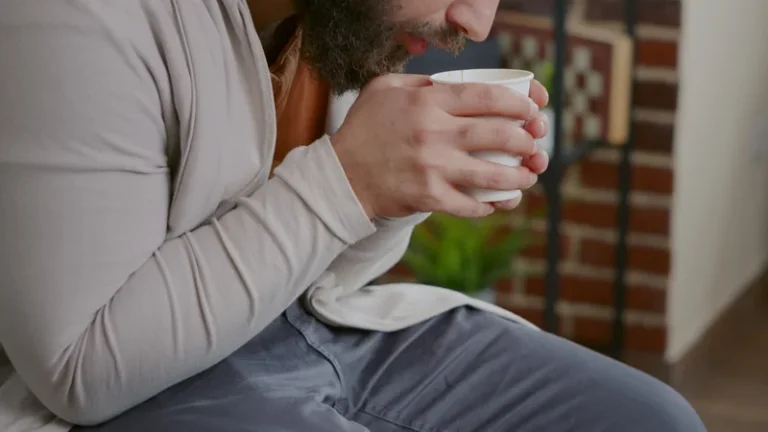
Individuals blame outside influences instead of recognizing personal accountability for their actions and choices. In such a manner, they can avoid confronting the reality that they have a drinking problem. We need to learn what alcoholic denial is and why it happens to people with drug problems. We need to be able to approach with empathy to the loved ones who are reluctant to change, helping them face the truth and become more open to change. You, too, might realize that your relationship with alcohol is negatively affecting your life. In short, “there’s not a single image of AUD,” points out Sabrina Spotorno, a clinical social worker and alcoholism and substance abuse counselor at Monument.

I Don’t Drink During the Day
Depending on your situation, you may need to learn how to live with an alcoholic in denial, as well as work out other ways to help them see the truth. It is thought that around 50% of people with schizophrenia may also be suffering from anosognosia, preventing them from seeking help or taking their prescribed medication. This is particularly common if friends or family members are enabling the affected person, as denial can go both ways.
Struggles with Alcoholism: A Journey from Denial to Recovery
Certain traits, such as independence and perfectionism, can add to a person’s hesitancy or reticence to alcoholics in denial seek help, says Grawert. People who are high functioning with a drinking problem “seem to have everything together,” says Matt Glowiak, PhD, LCPC, a certified advanced alcohol and drug counselor. They’re able to successfully manage tasks around their work, school, family, and finances, he says.
Is Denial Always A Part Of Alcoholism?

This behavior can be frustrating for loved ones who are genuinely concerned and trying to offer support. Often, when confronted about their drinking habits, individuals in denial may brush off the concerns or downplay them as insignificant. They might say things like, “Let’s not make a big deal out of it,” or “I just enjoy a few drinks; it’s not like I have an addiction.” When we are discussing addiction, we often come across the term alcoholism addiction. It is a common issue in the recovery journey from alcohol addiction and can hinder progress towards sobriety.
Why denial is common for people with AUD
There may be many reasons why someone is hesitant to seek help — from lack of awareness to stigma and shame. Even if you are aware that your drinking has become a problem, it’s common to worry about what others might think. In a 2015 study, almost 29% of participants didn’t seek treatment due to stigma or shame. While not everyone struggling with alcohol addiction will be in denial, it is an extremely common symptom of alcoholism.
Lying Is a Characteristic of Alcoholism
Whether or not you experience a hangover after drinking does not change the detrimental effect alcohol is having on your body. It can be painful and scary watching someone you love struggle with alcohol addiction. According to the National Institute on Alcohol Abuse and Alcoholism (NIH), approximately 14.5 million Americans aged 12 or older have alcohol use disorder. When you’re worried about being judged or confronted about something, honesty can take alcoholism treatment a back seat. It may be easier for the person with alcohol use disorder to hide the truth than to be honest about their drinking habits.
Signs Of Denial In Alcoholism
- Minimization, on the other hand, involves downplaying the extent or impact of their drinking.
- People might convince themselves or others that their drinking falls within the “normal” range.
- Recent studies suggest that the same areas of the brain affected by addiction may be responsible for self-awareness.
- It can be painful and scary watching someone you love struggle with alcohol addiction.
At The Retreat, we believe in grounding our program on spiritual principles like those found in Alcoholics Anonymous (AA). By providing education and guidance within this framework, we empower individuals to confront their denial head-on while offering them tools for sustained sobriety. Engaging in arguments often leads to defensiveness and further denial. Acknowledge their struggles but gently point out how alcohol is exacerbating their problems.
Why Do Alcoholics Lie and Blame Others?

We’re here 24/7 to help guide you or your loved on through rehab and recovery. Because it is a legal activity that is socially acceptable, it is easy to deny that alcohol can be very addictive and cause a lot of harm. It is important to continue to educate ourselves, our loved ones, and our community about the dangers of alcohol and the fact that alcoholism is a disease. When discussing their issues, gently ask them about any challenges they may be facing that could possibly be related to their drinking habits. By opening up a dialogue in a non-confrontational manner, you allow them to reflect on how alcohol might be impacting their life. For instance, calling in sick on behalf of an intoxicated spouse or continuing to invite someone with alcohol use disorder out to bars can reinforce their denial by minimizing the consequences.


Scenewerk said addiction is a disease of insanity, of “unrelenting, continuous poor choices.” “That shame and guilt is what makes you drink about 2 hours afterwards,” he said. Drinking became a matter of survival and impacted his work until his closest advocates noticed something was wrong. Let’s explore some examples of behavioural addictions and why denial might happen in each.
- Let them know that there are ways they can overcome their addiction and live a fulfilling life once again.
- While you should not put too much responsibility on yourself to help an alcoholic in denial to see the truth, it’s natural that you may want to do anything you can to help.
- Consequently, many people may not realize their drinking has become a genuine problem.
- That is, they consistently deny the fact that 12-step programs are largely ineffective.
“Closet” alcohol consumption may take place in patterns ranging from moderate to heavy, though these patterns are carefully concealed. Binge drinking in private settings is a common behavior, allowing individuals to achieve the desired effects of alcohol without drawing attention. When faced with a social situation, they will consume beforehand and often come prepared with a way to drink secretly during the event. Identifying “closet” alcohol use disorder poses challenges due to the deliberate efforts the person makes to conceal their behaviors. There are certain indicators suggesting the presence of an AUD to watch for. Physical signs, such as bloodshot eyes, unexplained tremors, or a noticeable odor of alcohol offer subtle clues.
